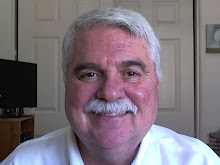Excerpt from Tom Brokaw’s “The Greatest
Generation”, 1998.
“I have a daily reminder of the war because of my disability. It
changed my life.”
The
wartime exploits of Bob Dole are well known by now. He was a young lieutenant
out of Kansas when he was gravely wounded as he led his squad from the 10th
Mountain Division against a fortified German position in the Italian Alps. He
almost died before he was evacuated to the United States for a long series of
operations and excruciating therapy in what turned out to be the impossible
task of completely saving the use of his right arm. The terrible wound came in
a flash of enemy fire on an Italian hillside. The recovery took three years and
three months in America, during which he almost died from infections and other
complications.
For
part of his recovery period he was in a hospital ward with two other wounded
veterans, Daniel Inouye of Hawaii and Philip Hart of Michigan. Later the three
friends would serve in the U.S. Senate at the same time. Although they
represented different political philosophies, that common experience of the war
and wounds was a bond that transcended partisan considerations.
Dole’s
experience in the war and the sacrifices of his working class parents and
friends from the small, hardscrabble town of Russell, Kansas, to help him
recover from his injuries were appropriately familiar themes in his political
career, especially in his campaign for president against Bill Clinton. It was
always touching when this complex, proud man, so private and even abrupt when
it came to other personal matters, talked about the time in his life, choking
up as he described how his father, with so little means, struggled to make the
train trip from Kansas to Chicago to see his badly injured son; how his mother,
even though she hated smoking, held his cigarettes for him as he lay in a
hospital bed, barely able to move either arm in the early going; how the people
of Russell set up cigar boxes in businesses along Main Street and labeled them
THE BOB DOLE FUND, raising eighteen hundred dollars for his medical fees,
mostly through quarters and half-dollars. One of his neighbors was as poor as
the Doles, but he wanted to do something, so, the Senator remembers with an
affectionate chuckle, “He brought me a duck. Couldn’t afford anything else, so
he brought me a live duck!”
It
may be difficult for current generations to understand just how much poverty
there was across America, even after the war. Working-class families lived
right on the margins with very little left over. They were used to it, as it
had been that way since the beginning of the thirties, especially in rural
America. Indeed, after the Depression, joining the Army was a step up for many
Americans. Dole remembers, “It was a good deal; you got a good pair of boots,
three meals a day, new clothing, a new rifle. It was the most many young Americans
had ever had.”
James DeVane grew up in rural North Carolina during the Depression. As a
combat infantryman, he was captured by the Germans during the Battle of the
Bulge and spent three harrowing months in a prisoner-of-war camp. Still, he
believes what he and his family went through during the thirties was more
difficult and more meaningful to his life. They lived in a simple log cabin,
heated by coal and a wood stove, with no plumbing or electricity. DeVane
carried a shotgun to school every morning so he could shoot game birds along
the way for the kitchen table. His father raised pigs and goats and sold his
catch of shad from the Cape Fear River. His mother organized local friends to
gather mistletoe from the nearby woods and sell it to New York merchants.
Together, DeVane’s parents managed to keep the family together, which so
impressed their son that he’s able to say, “I know it was less stressful to
fight as a soldier with only yourself or your squad to look after than it was
to care for, feed, and raise children in the Depression.” DeVane, who now has a
successful printing business, concludes, “World War II infantryman came from a
background of heroes.”
Please think about this today and think about
your family and friends who came before you who sacrificed their lives for you.
God Bless America.
Claremont, CA
May 27, 2013
#IV-6, 163



No comments:
Post a Comment